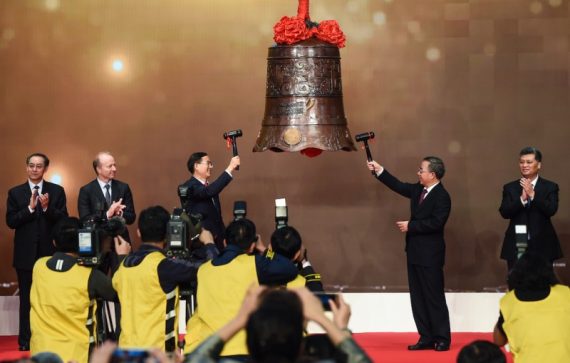T
The world’s second-largest economy is currently struggling with deflation for the first time since 2020. Last month, China reported that its consumer prices fell to 0.3% with a 4.4% year-on-year drop in producer prices. This comes as a surprise as the rest of the world is grappling with inflation.
While lower prices may sound attractive to the ordinary consumer, economists warn that deflation may be the tip of a horrible iceberg. Economists perceive deflation as a bad economic sign, which should be reversed immediately.
Why is China struggling with deflation in the first place? What are the implications of its current economic situation? And, will China become the next Japan, in terms of economic recession?
The effect of COVID-19 on the Chinese public
In 2020, the U.S. and UK governments enacted aid programs known as “social security nets.” The programs aimed to relieve some of the economic hardships that came with COVID-19.
In March 2020, the U.S. government introduced its Economic Security Act, known as the “CARES Act.” The act provided “economic impact payments” of up to $1,200 per adult and $500 per child. In December 2020, the COVID-related Tax Relief Act authorized additional payments of up to $600 per adult and per child for eligible individuals. Similar aid programs were also applied in 2021 to help homeless, poor, and unemployed Americans adapt to the economic fallout.
Similarly, in March 2020, the British government announced that it will help pay the wages of millions of workers across the country. Rishi Sunak, the Chancellor of the Exchequer and Second Lord of the Treasury at the time, declared that the government would pay up to 80% of workers’ wages if companies kept them on their payrolls. Sunak said that the government’s aid was a national effort to protect jobs from the economic turmoil of COVID-19.
These actions ultimately intended to prove to citizens that they were not alone in the economic crisis. However, that wasn’t the case for Chinese citizens. Although the Chinese economy is one of the strongest in the world, China has one of the weakest social safety nets among developed nations. The Chinese government handled the COVID-19 crisis with one of the harshest approaches, known collectively as the “zero-COVID” policies: cities were forced abruptly into lockdowns and people were forced to stay indoors. In some cities residents were not allowed outdoors except for COVID-19 tests.
This affected the employment of millions of Chinese people and led to mass unemployment. In March 2020, the beginning of the pandemic, it was estimated that 80 million Chinese workers became unemployed, causing people suddenly to lose the source of income that covered their living expenses. Meanwhile, the Chinese government only provided aid to 2.3 million people. As a result, 77.7 million people were left to fend for themselves financially during the pandemic.
The economic behavior of Chinese consumers after COVID-19
Unfortunately for the Chinese public, the government did not effectively help citizens overcome the economic crisis. Instead, government efforts were directed towards industrial manufacturing activities. As a result, when lockdown measurements were lifted, the Chinese decided to save their money instead of indulging in what is known as “revenge spending.”
Revenge spending is a term used to describe the tendency to spend more money than usual after a period of restrain or financial struggles, such as the COVID-19 pandemic. This is what happened in countries like the U.S. and the UK, and this is what China was also hoping for after the pandemic; however, the Chinese public preferred to save its money instead.
The public’s frugal spending led to the deflation of commodity prices, as the demand for such items was not high. In the first half of 2023, the savings of Chinese families in banks were reported to have increased to ¥12 trillion, equivalent to $1.7 trillion. Families typically would spend this money on daily expenses or real estate. This has changed as a result of the suffering real estate industry after COVID-19.
Since 2021, the Chinese real estate industry has been drowning in increasing crises. On August 8, 2023, Country Garden, the largest real estate developer in China, announced that it would not be able to pay its two-dollar bond coupons on time, totaling $22.5 million. The announcement led Chinese consumers to choose to save money rather than invest it, causing a decline in the overall real estate prices—a problematic development given that real estate accounts for 30% of China’s GDP.
A vicious cycle
The Chinese government understands the risk of declining real estate prices and has prohibited developers from reducing real estate prices despite their debt which currently stands at ¥13.6 trillion. The government is aware of the panic the deflation has caused among consumers.
The problem of the Chinese economy is reflected in two factors: unemployment and the “deflationary mindset.” China’s youth unemployment rate, which official resources estimate to be around 21%, is among the highest in the world. The unemployed cannot afford to get married, let alone buy real estate. This, in turn, affects the spending behavior on other commodities such as household products, which are also in decline. As a result, companies engage in competition to lower prices in order to attract consumers.
On the other hand, when prices keep dropping for a long time, a “deflationary mindset” makes an appearance in society. This refers to the idea that when prices continuously decline, consumers restrict their spending in the hope that prices will continue to drop and they can get the product for an even cheaper price in the future.
While this may sound like good news for the consumer, it is terrible news for the economy. The deflationary mindset can lead to huge company layoffs as price drops will affect their marginal profit and lead to an inability to finance their workforce. As a result, in the long run, the Chinese public will not profit from the current deflation.
Recommended
Who will be affected by the deflation in China?
The international demand for Chinese products has declined in recent months, resulting in a decline in the rate of exports as well. For example, in July, Chinese exports fell by 14.5% year-on-year, which is the largest decline in Chinese exports since February 2020 and the third consecutive monthly decline.
China hoped that domestic consumption would help make up for the decline of exports. However, the Chinese public seems to be unable to forget the experience of COVID-19 and at the moment, is preferring to save money. Even price wars are not able to change the current Chinese economic behavior. For example, Nanchengxiang restaurants in Beijing offer breakfast for just ¥3, which is less than $1. Such competitive offers have failed to reverse the deflation, which combined with the unemployment rate, is considered to be the Chinese economic miracle’s newest nightmare.
Internationally, the effect depends on the situation of individual countries. For instance, oil-producing countries would be negatively affected because of the decreased Chinese demand for oil and natural gas. Conversely, countries with a weak domestic production would benefit from the deflation in the prices of Chinese products.
The deflation that China is currently experiencing is reminiscent of the prolonged Japanese economic decline that began 25 years ago. While it is too early to say whether China will follow in Japan’s footsteps, it is an alarming possibility if the current deflation doesn’t turn into economic growth soon.






